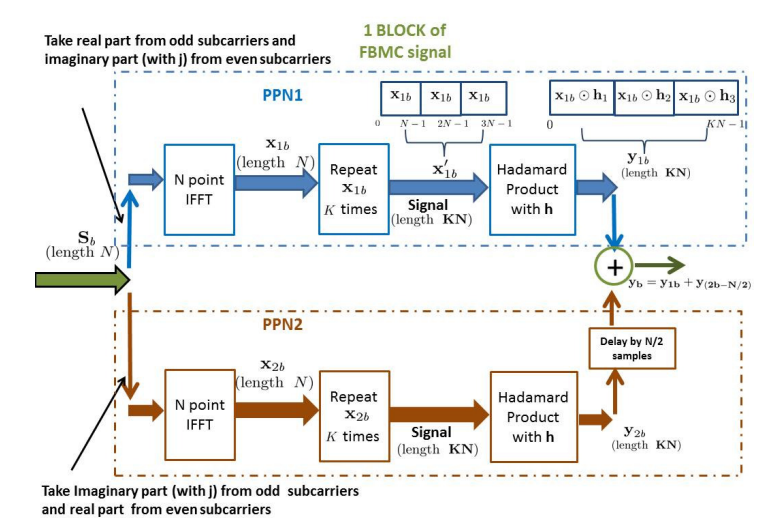Autocorrelation Based Spectrum Sensing of FBMC Signal
Also Available Domains 5G networks
Objective
The main aim of the project is to develop FBMC signal
Abstract
The focus of this paper is on a feature detector for filter bank multicarrier (FBMC) signal in cognitive radio. In this paper, we first prove that the FBMC signal samples are uncorrelated with each other. However, if the FBMC signal is processed by our proposed method, then the autocorrelation function (ACF) of FBMC signal becomes non-zero at the lag equal to number of subcarriers. On the other hand, additive white Gaussian noise (AWGN) samples after the same proposed processing remain uncorrelated. Using this feature, an autocorrelation based feature detector is proposed to detect FBMC signal in noise. The main advantage of the proposed detector is that, unlike blind detectors, this detector can distinguish between FBMC signal and noise (or interference). Next, the distribution of the test statistic of the proposed detector is derived under noise-only scenario so that the threshold of the Neyman-Pearson detector can be designed to maintain constant false alarm rate while maximizing the probability of detection. Simulation results demonstrate the efficacy of the proposed detector.
Keywords—Autocorrelation, cognitive radio, FBMC signal, feature detector
NOTE: Without the concern of our team, please don't submit to the college. This Abstract varies based on student requirements.
Block Diagram

Specifications
Software Requirements:
MATLAB R2018a or above
Hardware Requirements:
Operating Systems:
• Windows 10
• Windows 7 Service Pack 1
• Windows Server 2019
• Windows Server 2016
Processors:
Minimum: Any Intel or AMD x86-64 processor
Recommended: Any Intel or AMD x86-64 processor with four logical cores and AVX2 instruction set support
Disk:
Minimum: 2.9 GB of HDD space for MATLAB only, 5-8 GB for a typical installation
Recommended: An SSD is recommended A full installation of all MathWorks products may take up to 29 GB of disk space
RAM:
Minimum: 4 GB
Recommended: 8 GB
Learning Outcomes
- Introduction to Matlab
- What is EISPACK & LINPACK
- How to start with MATLAB
- About Matlab language
- Matlab coding skills
- About tools & libraries
- Application Program Interface in Matlab
- About Matlab desktop
- How to use Matlab editor to create M-Files
- Features of Matlab
- Basics on Matlab
- Basics of wireless communications
- How system modal can be formed in Matlab.
- Construction of algorithm according to system modal
- Analyzing and visualization of plots.
- Phases of data transmission:
- Generation of input signal
- Construction of transmitter
- Formation of channel
- Construction of receiver
- How to extend our work to another real time applications
- Project development Skills
- Problem analyzing skills
- Problem solving skills
- Creativity and imaginary skills
- Programming skills
- Deployment
- Testing skills
- Debugging skills
- Project presentation skills
- Thesis writing skills





 Paper Publishing
Paper Publishing
